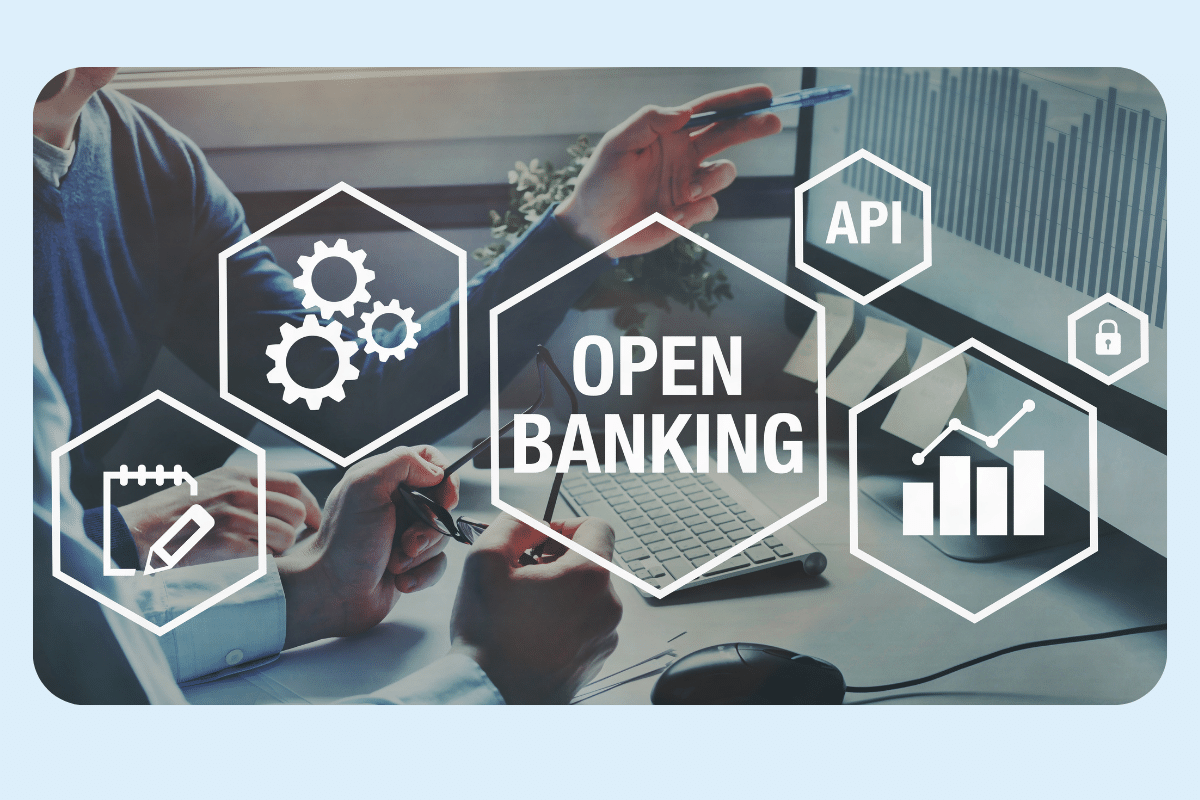
11 Fintech Trends That Shape Financial Future in 2023
Financial sector is like the blood system of the entire economy. No wonder so many resources are being devoted into developing advanced technologies better known as fintech.
The world is slowly approaching the point when we conduct almost all financial transactions digitally. Even though there is a rise of concerns about privacy aspects, the ability to conduct financial transactions, regardless of geographical barriers, offers numerous benefits. The benefits that are not visible at a first glance.
In today’s post, we are going to cover the most prominent and important fintech trends for 2023.
Contents
- What is fintech?
- Role of fintech in the modern economy
- What is the future of fintech?
- What are the trends in fintech?
- 1. Financial software development
- 2. Artificial intelligence and machine learning
- 3. Blockchain technology
- 4. Low-code for finance
- 5. Open source and SaaS
- 6. Open banking
- 7. Hyperautomation
- 8. Next level of payments
- 9. Cloud computing
- 10. Regulatory Technology (Regtech)
- What is the next big thing in the fintech industry?
What is fintech?
Let’s cover the basics at first and answer the main question of what really falls into the category of fintech?
Fintech, or financial technology, is an umbrella term used to describe innovative solutions and technology that is being adopted by the financial sector in order to automate the delivery and expand the usage of financial services.
Similarly to other applications of artificial intelligence and Big Data in business, fintech is utilized to help companies grow by processing their data more effectively. Business owners, as well as individual customers, can manage their financial operations and investments better thanks to sophisticated technologies.

Role of fintech in the modern economy
Financial technology has become even more prevalent during the COVID-19 pandemic as people started to use contactless payment methods and online financial accounts more frequently.
Currently, fintech trends are fueling the change in almost all parts of digital banking and international financial markets.
“Already, many banks are partnering with fintech firms to enhance their service offerings. Financial institutions are realizing that in order to maintain brand loyalty they have to focus on speed, accuracy, and transparency.”
Said Gabriel Lakeman, an associate at Latham & Watkins – an American multinational law firm.

What is the future of fintech?
The past two years were extremely turbulent in the financial markets and banking institutions worldwide. From record lows in the March of 2020 to a record bull run, when the S&P 500 returned over 60% in the span of a single year.
All of that fueled new developments and advancements in the field of financial technology in order to cope with new, emerging challenges.
According to research published by deVere Group, the COVID-19 pandemic has caused a huge rise of 72% in the use of fintech apps on the old continent.
Since the beginning of 2020, almost 42% of Americans have used at least one fintech platform and there is a 26% increase in their popularity.
Currently, the global fintech market is valued at around 3.56 trillion USD with the largest segment being digital payments accounting for over 8,5 billion USD in 2022.
And the growth of financial industry is nowhere near finished. Fintech is projected to grow at a compound annual growth rate (CARG) of 23.58% in the next 3 years. Digital transformation in finance is happening now.
[Read also: What’s the Future of Digital Transformation and Its Trends? An Expert’s Point of View]

What are the fintech trends for 2023?
1. Financial software development
In today’s world basically all B2B transactions are being recorded digitally.
On the scale of the entire economy that means millions or even billions of transactions taking place on a daily basis.
Such an immense amount of peer-to-peer transactions necessitates the usage of high-performance and high-throughput financial platforms that manage financial information, providing invaluable information to managers and CFO’s.
At Stratoflow, we have substantial experience in developing software for the fintech industry. We were selected by a team of experienced finance experts and financial industry veterans to become their main development team designing and implementing a next-generation cutting-edge accounting engine.
In all of the projects we tend to follow three core principles when working with our clients:
- Gaining a deep understanding of project specifications,
- Choosing the right tech stack,
- Designing software architecture with scalability and high performance in mind.
A team of our Java developers came up with a highly innovative architecture based on in-memory data processing and open-source solutions. Upon it, we developed a highly scalable, high-performance accounting engine, ledger, and reporting system.
The system is now live and capable of processing over one billion financial transactions within an hour and querying billions of balances in sub-second times.

2. Artificial intelligence and machine learning
Artificial Intelligence (AI) technology has been slowly trickling into the fintech industry for quite some time.
According to McKinsey, that artificial intelligence (AI) can generate up to $1 trillion in additional value for the global banking industry annually.
What’s more, AI applications bear the potential to influence the entire spectrum of financial industry operations across front, middle, and back offices. We can point out four different areas of financial institutions where artificial intelligence can make a significant impact:
Improved customer experience
Just like in e-commerce, AI-powered chatbots can minimize the workload of customer service representatives and help users with common and simple problems. On top of that, a lot of popular banking apps offer personalized financial advice to help users manage their savings more effectively.
Advanced risk score profiling
Financial companies are using Artificial Neural Networks for classifying users’ risk profiles. In order to do that they use a great volume of unstructured data which is processed by the neural network.
Fraud detection
According to Javelin research, online users have suffered a 56 billion dollar loss in 2020 due to fraudulent activities. This is another field in which AI can help as it automatically and proactively blocks a user’s requests and access to an account if the system detects potentially fraudulent activity.
User behavior analysis
The key to profitability is to be aware of what services the users are interested in. AI APIs can be leveraged by banks and fintech companies to minimize the number of requests and improve efficiency accordingly. From the users’ perspective, the application is more responsive and the offer is more personalized.
Read also: Benefits of Digital Transformation for Your Business
3. Blockchain technology
When you think about Blockchain and the financial market, the first thing that comes to mind are cryptocurrencies. Even though Bitcoin, Ethereum, and other cryptos have influenced financial markets worldwide significantly, it is certainly not the only adoption of the Blockchain in fintech.
Blockchain, or more precisely, a Distributed Ledger Technology (DLT) allows recording, sharing, synchronizing, and distributing data across a distributed network of users.
It is a backbone of many innovative solutions emerging in the financial markets. These are solutions such as, for example, zero-knowledge proof and smart contracts which are fueling innovations in the fintech markets.
Let’s take a closer look at the most important fields in which Blockchain technology is influencing fintech:
Decentralized finance (DeFi)
Decentralized finance is a term referring to software architectures that replace intermediaries by automatically validating transactional data.
It allows customers to obtain loans and make financial investments, without relying on centralized financial entities.
DeFi methodology adopts deterministic smart contracts, which greatly improve efficiency, transparency, and security along with limiting the risk of rent-seeking intermediaries.
The rise in popularity of decentralized finance is undeniable as the total value of DeFi has surged by nearly 50 times in the past 10 months which surely underscores the Blockchain’s technological value for the finance industry.

Real-time transaction settlements
Smart contracts allow banks to settle the collateral and cash part of a transaction simultaneously on the Blockchain.
Thanks to the Distributed Ledger Technology, digital collateral supporting the trading of financial instruments greatly improves efficiency, scalability, and transparency.
Zero-knowledge proof authentication
Another unconventional application of Blockchain in the fintech space are zero-knowledge authentication methods.
Currently, customers have to share crucial information in order to verify their identity online. Zero-knowledge proof authentication allows online users to share information required for each transaction while other data remains safely on the server of the trusted provider.
It thus greatly improves user-perceived safety and privacy.
Digital asset support services
Blockchain shapes fintech trends for institutional investors as well.
Tokenization for unlisted companies, spot exchanges between established cryptocurrencies, key escrow encryption… These are some examples of financial services that fuel companies development by giving them easier access to financing options.
4. Low-code for finance
We’ve already explored the topic of low-code and no-code platforms as an alternative to traditional software architectures.
As a quick recap, no-code development platforms (NCDPs), and their low-code counterparts (LCDPs) allow programmers and non-technical users to build applications using intuitive visual interfaces without coding. To learn more about this approach, read this article: How to Build an App Without Coding: 5 Must-Know Tips.
Apparently, fintech is a large beneficiary of these technologies.
The biggest advantage of NCDPs platforms is accelerating the development of cloud-based applications. According to Forrester’s research, low-code development can speed up the overall development time almost ten times.
This is exactly what financial institutions are looking for in order to quickly respond to rapid market shifts and current fintech trends.
Read also: Is Low-Code/No-Code the Future? Most Important Trends
Low-code and no-code platforms can help fintech companies by streamlining the development process as well as minimizing risks in traditional software development.
A lot of tasks in the financial sector are repetitive and time-consuming. This is the exact place where modern and quick software solution can be leveraged.
Tasks like audits, compliance maintenance, and generating financial documents can be automated to a great extent using low-code and no-code platforms.

5. Open source and SaaS
In today’s highly competitive landscape of the modern digital economy, performance and scalability represent the backbone of innovation in the financial sector.
Serverless architecture, open source architectures, and Software-as-a-Service (SaaS) solutions have become a staple of the fintech market in the past years.
SaaS applications don’t always need the installation of any software on an individual machine. It allows the use of the system via an internet browser and saves valuable resources for other operations.
Serverless and open source architectures also play a vital part in reducing costs of fintech organizations. The transactional data is linked to executed software code, and is not generated round-the-clock.
SaaS fintech applications are also important in allowing the existence of embedded finance, i.e., seamless integration of financial services in non-financial institutions.
6. Open banking
Open banking, or open bank data, is an innovative banking practice that provides third-party APIs providers an open access to financial data from banks and non-bank financial institutions.
This exchange of sensitive banking data is secure and performed only with the full consent of the end users.
Even though this kind of use of private information may seem unnecessary, it can be beneficial for both financial companies and customers. In order to better visualize this, let’s use personal finance as an example.
Until a few years ago, personal finance basically boiled down to contacting your local bank, reviewing their offers and managing your money as best as possible.
Currently, thanks to open banking solutions and accessing account information, financial intitutions and banks are able to personalize their offers in a very extensive way. For example, if you are saving for a new car, the bank recommends a loan tailored to your income and creditworthiness or an attractive lease.
What effect does it all have on the fintech industry?
Here are three key beneficiaries of the open banking solutions:
- For commercial businesses – open banking is actively providing bank client data, which is an invaluable asset when optimizing profitability.
- For financial service providers – open banking allows financial service providers to diversify their portfolios with more advanced services.
- For customers – it offers personalized financial advice and product tailored to clients’ specific needs.

7. Hyperautomation
One of the important emerging fintech trends in 2023 is hyperautomation.
Hyperautomation is a complex combination of other advanced technologies like Robotic process automation (RPA), API Integration, Artificial Intelligence (AI), and Machine Learning (ML). It is used in order to augment and improve processes in the financial market.
Traditional banks implement hyperautomation technologies to connect their digital solutions into a more comprehensive system. It can thus greatly support their human workforce and decrease operational costs in the long run.
It is estimated that by 2024, digital banking will be one of the top industries spending on artificial intelligence. Around 80% of leading finance managers and CFOs are planning or have already implemented RPA solutions that improve financial management.
8. Next level of payments
We all have heard predictions that cryptocurrencies will soon replace conventional fiat money.
Even though that vision has never come true due to cryptos’ extreme volatility, there are still innovations in the field of payments and financial transactions worth paying attention to.
According to recent reports, largely due to the rapid development of the e-commerce market, mobile wallets will become the most popular online payment method by 2024 globally.
A mobile wallet is a virtual wallet that safely stores financial information and credentials. The biggest advantage is the fact that fraudulent activities, such as identity theft, are harder to initiate with virtual mobile wallets.
In the U.S. alone, mobile wallets are set to overtake conventional debit cards as the most popular payment method in a couple of years.
9. Cloud computing
Nowadays fintech industry largely depends on how fast financial data can be processed.
With millions of daily online transactions happening worldwide, the presence of high-performance systems is necessary. This is why so many fintech companies are investing substantial resources into developing cloud computing solutions.
McKinsey reports that by the end of the decade, cloud technology will account for EBITDA in excess of 1 trillion dollars. What’s more, cloud services dedicated solely to the financial sector are predicted to grow over 24 percent annually in the coming years.
We can differentiate between three emerging cloud-computing trends present in the fintech sector:
Edge computing and edge cloud
Edge computing and edge cloud is a kind of software architecture philosophy based upon the idea of decentralization of data storage and processing.
The use of edge devices that store data locally enables faster decision-making. It is crucial in financial markets when every fraction of the second matters.
AI-cloud integration
AI-cloud platform applications are proliferating in fields like biometric authentication technology and speech recognition technologies. This technology improves the user experience in financial services products.
Cloud containers
A lot of tech companies are implementing container technology in cloud storage, that works in a similar manner to the multi-tenant architecture. It allows multiple workloads to run on a single operating system instance, reducing hardware loads and improving the overall efficiency of financial cloud services.
Read also: Travel Technology Trends Emerging in the Tourism Industry
10. Regulatory Technology (Regtech)
Another field that is benefiting from recent fintech software innovations is the so-called Regtech.
Regtech is a category of applications and solutions that help organizations achieve compliance with complex industry regulations. Regulatory technology automates the search for compliance issues and in turn, improves accuracy.
RegTech solutions and tools monitor data security, warn employees about potential fraudulent activities, and automate repetitive tasks. Considering how important security is for large enterprises, the value of the compliance software solution is projected to hit $55.28 billion in the next 3 years.

11. Embedded finance
Speaking of fintech trends, one should not overlook the new type of collaboration between traditional banks, technology suppliers, and financial products distributions via nonfinancial platforms called embedded finance.
Embedded finance integrates bank accounts, payments, lending, investments, and other financial products directly into non-financial organizations or platforms by combining banking-as-a-service (BaaS) capability with application programming interfaces (API). Simply put, embedded finance is when a financial product is placed in a non-financial customer experience, so the whole financial process is more efficient. As a example of embedded finance we can mention systems like Afterpay which allow you to get a loan right at the point of purchase without a need to use credit card.
Will embedded finance change the future of financial industry? According to Plaid and Accenture’s research report, there are four ways that embedded finance could change the business of traditional financial institutions and non-financial companies:
- New way of building relationships between financial companies and consumers.
- New revenue streams.
- New types of competition.
- A new era of partnerships.
What is the next big thing in the fintech industry?
One thing can be said for sure about the financial industry – the pace of innovation is only going to increase.
For example, while payments comprise only 5 to 7% of a typical company’s spending on software and services, payment providers are still working on innovative solutions that are aimed to decrease this cost by an additional 40%.
We also expect to see a rise in relevance of the Asia–Pacific market when it comes to payments revenue. Considering the stable growth rate of China economy, this result is not going to surprise anyone.
By integrating technology with financial services, the fintech industry has boosted its popularity worldwide. It has also brought huge investments by various business verticals, increasing the efficiency of the businesses and partnership for innovation and research.

What is the future of fintech? – summary
The fusion of the financial market with modern technology benefits companies as w ell as end users by providing them with more personalized experiences.
In 2023, we can witness a lot of ground-breaking innovations in the field of financial technology. With numerous companies striving to improve their KPI’s and looking to incorporate advanced tech in their day-to-day operations, companies from the fintech market will flourish.
Financial industry development will not only mean better profit margins for international mega-corporations but also better user experiences when paying bills and applying for a loan in a bank app, or investing in stocks via an online broker.
Related Posts
We are Stratoflow, a custom software development company. We firmly believe that software craftsmanship, collaboration and effective communication is key in delivering complex software projects. This allows us to build advanced high-performance Java applications capable of processing vast amounts of data in a short time. We also provide our clients with an option to outsource and hire Java developers to extend their teams with experienced professionals. As a result, the solutions designed for our customers contribute to their business development. We specialize in travel software, ecommerce software, and fintech software development. In addition, we are taking low-code to a new level with our Open-Source Low-Code Platform.